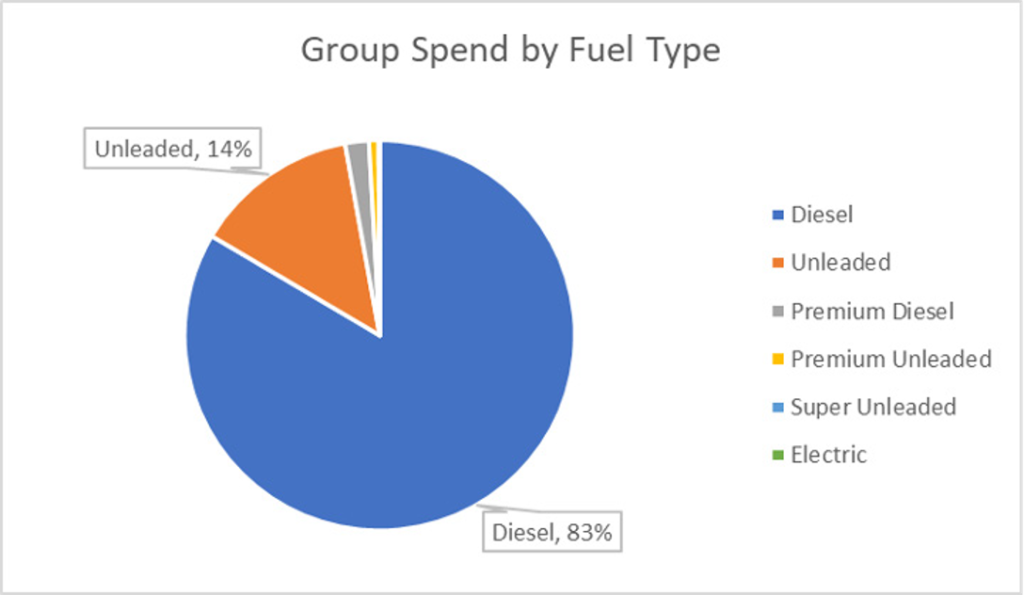Definition:
ESG stands for Environmental, Social and Governance. It is a framework used to evaluate the sustainability and ethical impact of a business. Here’s a brief description of each element:
Environmental
This aspect considers how a company performs as a steward of nature. It includes factors like energy use, waste management, pollution, natural resource conservation and animal welfare. It also evaluates how a company addresses climate change and environmental risks.
Social
This dimension examines how a company manages relationships with employees, suppliers, customers and the communities where it operates. It includes labour practices, human rights, community engagement, diversity and inclusion and customer satisfaction.
Governance
This criterion involves leadership, executive pay, audits, internal controls and shareholder rights. It focuses on ensuring that a company’s leadership acts in the best interests of its long-term success and integrity.
The growing importance of ESG in business
The term ESG was first coined in 2005 in a landmark study called “Who Cares Wins.” Today, ESG investing equates to around a quarter of all professionally managed assets around the world, and its rapid growth builds on the Socially Responsible Investment (SRI) movement that has been around much longer.
2021 was the year in which the United Nations Climate Change Conference – COP26 – took place at the SEC Centre in Glasgow, from 31st October to 13th November. David Attenborough addressed the conference by saying that humanity was “already in trouble”. He called on leaders to be “motivated by hope rather than fear” to avoid climate catastrophe.
“[It is time] To turn this tragedy into a triumph – we are after all the greatest problem solvers to have ever existed on Earth. We now understand this problem, we know how to stop the number rising and put it in reverse.’
Whilst cynics may argue that responsible investing is just a fad, a closer look at the forces that have driven the movement over the past 19 years suggests otherwise. Firstly, technology and the rise of transparency are here to stay.
Gathering and processing data is set to become ever easier and cheaper. Smart algorithms will increasingly allow for better interpretation of non-traditional financial information, which appears to be increasing exponentially.
Secondly, environmental changes – and climate change in particular – will, with scientific certainty, put a growing premium on good stewardship and low carbon practices as natural assets will appreciate in value over time.
And thirdly, people everywhere are increasingly empowered by technology. ESG investing allows them to express their own values and to ensure that their savings and investments reflect their preferences, without compromising on returns.
The best way to capitalise on opportunities and avoid potential future challenges is to embrace the factors that relate directly to ESG.
For Premier Technical Services Group Ltd (PTSG), which occupies a significant part of the supply chain in the construction and FM sectors, we can ensure our c3,000 people act in a responsible way at all times – on and off site. We can also aim to influence the behaviour of those we work with.
ESG and Corporate Social Responsibility (CSR) are strongly aligned in our way of thinking and working. We view CSR as a self-regulating part of our business model. It helps us to be socially accountable – to ourselves, our customers and the public.
To engage in CSR means that, in the ordinary course of business, PTSG operates in ways that enhance society and the environment, instead of contributing negatively to them.
Plotting a Powerful Path to a More Sustainable Future
As a company that is recognised as a leader in a great many of the market sectors in which it operates, PTSG has started its ESG journey.
We are on a dedicated voyage to deliver robust ESG activities that align with the UK Government’s targets for 2050. Our commitment to environmental, social, and governance principles will eventually be at the forefront of our operations, ensuring that we contribute meaningfully to a sustainable future. By adhering to agreed targets, we aim to foster a positive impact on the environment and society, while maintaining strong governance practices.
ESG criterion cover a wide spectrum of issues that are not traditionally part of a company’s business decision-making, and yet they may have direct relevance financially. For example, how a large (and growing) service provider such as PTSG might respond to climate change, how effective their water management practices and health and safety policies are and how they manage their supply chain partners.
PTSG has always taken a collaborative approach in delivering specialist services for clients in a multitude of industry sectors – which has invariably led to an improved result, with all contractual partners aligned to the same view of success. By putting ESG higher up the agenda, we can be sure that we are doing our utmost to work towards the most sustainable outcome in every area of business. This document gives some examples of our recent work.
Environmental

Energy use and carbon offsetting
PTSG’s energy use has been meticulously monitored and recorded for a number of years across company headquarters and all constituent office locations. Detailed spreadsheets are produced annually to measure energy usage and calculate the Group’s carbon footprint:
- Vehicles – make and model, fuel type and usage (commuting, driving to site)
- Utilities – electricity, gas, water
A typical office uses the above utilities; it is lit and heated and provides a range of facilities for employees, all of which use energy. All of this is documented to show exactly what is being used by all offices within the Group, from the water boiler down to the number and type of lightbulbs. Recommendations are then drawn from this data and made by the Group’s HSEQ team, one example being the use of energy-efficient LED lighting.
The average person at PTSG has a carbon footprint of 5.7 CO2 tonnes per year (the UK average is 10 CO2 tonnes per year).
Making our vehicles greener
Fuel is by far the biggest contributor to PTSG’s carbon footprint. As a whole (including all constituent companies) PTSG is using 5.6 million litres of fuel per annum. The current split of fuel types is shown below:

Of the total fleet of 185 cars in the Group, 34 are now hybrids. That’s 18.4%.
Trinity Fire and Security (Trinity) is a constituent company that forms part of PTSG Fire Solutions Ltd. It currently operates 275 vehicles throughout its business at 10 UK office locations. 220 are vans used by engineers, representing by far the largest proportion of the company’s vehicles.
It simply isn’t practical to switch to electric vans due to the distances driven by engineers on a daily basis; charging points would need to be guaranteed to be available while out on site to avoid a flat battery on a regular basis. However, Trinity has moved from diesel to petrol vans, which emit less carbon. It has also reduced the size of the engines in its vans from 1.8 litres to 1.4 litres. The company’s fleet provider, Wessex Fleet, is continually looking to provide cleaner vehicles.
15 of the company’s vehicles are in use at London Heathrow, the location of Trinity’s largest account. Here, Toyota self-charging hybrids are used throughout its fleet; plans are being discussed to extend their use elsewhere.
Measures to make offices more energy efficient

Passive infrared sensors (PIRs) are motion sensors that switch lights off automatically in areas of buildings that are not in use. These have been installed in a large number of office locations so far, with the aim of including all offices in the Group.

Remote controlled air conditioning is a potentially significant contributor to greenhouse gases and therefore carbon footprint. While this is in place in a number of offices within the Group, measures are taken to limit the time that heating is in use and also to cap the temperatures. This lowers the use of energy used and therefore the carbon footprint.

Solar panels are one of the greenest ways to generate energy. A cost/benefit analysis has resulted in plans to install solar panels at a select number of locations to trial their effectiveness – with a view to an eventual roll-out in all locations.

Reducing carbon emissions to zero is incredibly difficult in today’s world and this is one of the best ways of offsetting carbon emissions. Through photosynthesis trees absorb carbon dioxide to produce oxygen and wood. PTSG is ;looking at ways to support tree planting as a way of offsetting carbon emissions.
In addition, individual use of energy at every office location continues to be monitored. When a more efficient alternative can be recommended, this is changed and entered onto the annual spreadsheet, with its energy output monitored regularly.
Net zero innovation
PTSG began working with Change Grow Live (CGL) in 2022. This is a charity that exists for people who need help with challenges including drugs and alcohol, trouble with housing, domestic abuse and mental and physical wellbeing.
The challenge for PTSG in this contract was that CGL has multiple sites spread nationwide, each requiring weekly/fortnightly/monthly flushing and samples.
Managing legionella services and water hygiene services is costly based on:
- water costs – having to run outlets until they reach temperature, wasting water;
- energy costs – having to use gas to heat the water;
- engineer visits – L8 testing, travel time and fuel costs; and
- all activities resulting in a heavy carbon footprint.
Working collaboratively, PTSG and CGL quickly arrived at a solution to overcome this challenge: remote temperature monitoring. This system combines hardware and software to perform automatic temperature auditing and data logging remotely.
This sustainable remote monitoring technology is attached to CGL’s assets, allowing PTSG to take the temperatures of the assets at any time. The remote temperature monitoring technology is attached to CGL’s assets and provides continual access to real time temperature monitoring (via a dashboard), giving us an accurate take on how each asset is performing and enabling effective recommendations to be made based upon these results. The calculated cost savings, CO2 savings and water savings up to now are as follows:

Net zero certification
PTSG, via constituent company Trinity Fire & Security (Trinity), has been providing fire and life safety systems at Heathrow Airport since 2011.
Its team achieved the LPS1204 accreditation for fire suppression in 2015 following a number of tough audits by the Building Research Establishment (BRE). PTSG Fire Solutions Ltd is one of only eight accredited fire suppression companies in the UK. In 2019, Adam Davies, Managing Director of Trinity, won the coveted Account Director of the Year at the PFM Partnership Awards.
Following the work of Trinity’s net zero strategy team, its Heathrow operation now meets the requirements of main contractor MACE, certifying it as NET ZERO.
PTSG strove to offset the carbon footprint of its Heathrow operations for the calendar years 2022 and 2023. It was successful in offsetting its emissions for both years, and this part of its business has been certified as net zero. This aligns with MACE’s desire for PTSG and all other subcontractors on site at Heathrow to be net zero at the earliest possible opportunity.
ESG and site working
Local project spend (within a 60-mile radius)
We have a policy of spending in the area local to each project in order to contribute to that region’s economy and to help local people. It is well known that money spent locally has a multiplier effect; the local companies with whom we spend put that money back into the local community, thus circulating that money and allowing the community to thrive. As a large company with a local presence in many different areas around the UK, we have a duty to do this – and it makes for a better environment in which to work and live.
Companies with a strong local presence, such as PTSG, have a positive effect on the environment, too. Being situated close to the project site reduces the amount of driving and the pollution created as a result.
We also strive to recycle as much of the material on site as possible. For example, if we are required to remove existing products or equipment, our first concern is whether they can be reconditioned or repurposed and used again elsewhere. Where this isn’t possible, we ensure all materials are recycled where possible.
PTSG is committed to achieving high standards of environmental performance in all aspects of its business activities, including complying with all relevant legislation and ISO standards. As part of this commitment we have focused on reducing key impacts in many significant areas such as waste management, energy reduction and carbon emissions.
We will:
- Measure and, where possible, reduce our impact on the environment.
- Minimise the consumption of energy.
- Measure and reduce our carbon footprint as part of the carbon reduction commitment.
- Seek to reduce our waste and to recycle as much as possible.
- Ensure compliance with all relevant environmental legislation and ISO certification.
SME spend
Wherever possible, we buy goods and materials from small and medium-size businesses. We fully appreciate that SMEs are a vital part of the supply chain for contractors throughout the country. Furthermore, smaller business can often deliver a superior, more personal level of customer service – something that resonates with PTSG, as giving our customers the very highest level of service is always our first priority.
Using a workforce within a 25-mile radius
Responsible sourcing is not only something we should be promoting throughout our company, it is a logical approach to working for PTSG. As a large company that has achieved comprehensive coverage of the UK, we always put the emphasis on “local” – wherever that may be in the UK. Helping to grow the number of jobs in specific areas makes for a better place to live and work, which creates a healthy economy for the community.
Where there is a shortfall in our own staff body for a particular project, it is our policy to source suitably skilled workers from the immediate area, wherever possible.
Apprenticeships
Our apprenticeship programme is built in such a way as to both identify talented young people and to develop the skill sets of more mature employees.
Due to the specialist works we undertake, we need to ensure our teams are fully equipped to face an array of challenges. Therefore, we have in place a programme of development for PTSG’s workforce, helping to identify ways in which we can improve on delivery and stay up- to-date with the latest policies, procedures and practices.
Work placements
PTSG is very keen to give work placement opportunities to talented and keen young people. Our business is all about teamwork and collaboration, with everyone working together towards common goals. We are delighted to welcome people to our sites who share our vision that specialist services are vital in protecting buildings and keeping their users safe.
We have a Group-wide development programme for talented young people, which runs in conjunction with our apprenticeship and training programmes. We are committed to helping our young people grow, both professionally and personally.
Job creation
In every PTSG contract, we assess the number of skilled personnel required to perform the highest possible quality of work to meet the required deadline, or complete the job before this date, and compare it with our employee base within the immediate area.
With c3,000 employees skilled in many different disciplines, covering five discrete areas in the FM and construction sectors, we can respond quickly and easily to jobs of all kinds.
We are the UK market leader in the design, installation, test and inspection of lightning protection, surge and earthing systems, with offices in several different parts of the UK. Therefore, we have skilled specialists who can be deployed in a number of localities, with the contingency of mobilising further engineers for larger projects.
Continuous Professional Development (CPD)
Everyone at PTSG is well remunerated and given bespoke, individually-tailored training packages designed and detailed for their own personal development. There has long been a skills shortage in the UK FM industry and long before Brexit became a reality, PTSG opened a training centre to ensure its engineers had the skills, training and qualifications required to perform the highly specialised work to the highest level in each of its business divisions.
This approach was recognised in 2018, when PTSG won the Apprentice of the Year award at the Steeplejack and Lightning Protection Training Group at Apprentice Awards ceremony. It continues to reap rewards as more of PTSG’s engineers are trained to the highest standards every year.
Social

Health and safety management
Our approach to safety is influential in the industry and we received ten consecutive Golds from RoSPA, arguably the most rigorous judge of health and safety in the world. We have also been recognised by the British Safety Council no fewer than ten times for our uncompromising approach to safety.
On three occasions we have achieved a distinction for a score of 49 out of a possible 58 in the judging criteria.
Much of our work is safety-critical, often performed at height. We will never compromise – if a task can’t be completed safely, we won’t do it. PTSG was the first company of its kind to have a dedicated Health, Safety and Environment department.
Mental health and wellbeing
PTSG, as an organisation that works in safety-critical environments, has always taken an uncompromising approach to health and safety. However, it is our approach to mental wellbeing and emotional support that sets us apart.
We have at least 40 qualified mental health first aiders throughout the Group, who are trained in giving expert health and advice on mental health issue. Any one of the Group’s c3,000 people can talk to them in absolute confidence at any time and receive access to the help they need.
Fundraising – Yorkshire Three Peaks
On Wednesday 26 June 2024, Andrew Stiller, from the business development team at PTSG, completed the Yorkshire Three Peaks Challenge. Andrew took on the challenge with a team from Mitie in support of Macmillan Cancer.
The Yorkshire Three Peaks Challenge is a 24-miles (38.6km) round-trip route and includes 1,585m (5200ft) of ascent. It takes on the peaks of Pen-y-Ghent (694 metres), Whernside (736 metres) and Ingleborough (723 metres), usually in this order, and in under 12 hours. These hills form part of the Pennine range and encircle the head of the valley of the River Ribble, in the Yorkshire Dales National Park.
The team, along with Mitie and other suppliers, collectively raised nearly £18K. As part of PTSG, Andrew has raised £2,755 so far and would greatly appreciate any further donations.
Fundraising – charity abseil
On 21 April 2024, two members of Guardian Electrical Compliance – part of PTSG – took part in a charity abseil event to raise funds for The Children’s Hospital Charity.
The event saw Mick and Hayley abseiling 140 feet down the Owen Building at Sheffield Hallam University. The Children’s Hospital Charity is a charity that is very close to the hearts of the team at Guardian. Headquartered in Sheffield, Guardian have supported the charity numerous times in recent years. Between the two teams that took part in the abseil event, a wonderful total of £1,841 was raised.
With 3,000 people employed throughout the group, PTSG undertakes a great many events and raises funds for a wide range of good causes. Past events include the National and Yorkshire Three Peaks Challenges. Others are Marathons, half-marathons and 10k runs, Tough Mudder events and even a Muddy Dog Challenge!
Fundraising – walk for Cancer Research UK
In June 2021, Carra Gale – Bid Administrator from PTSG Fire Solutions Ltd – and passionate fundraiser – took part in “Walk 60 miles in June with your dog for Cancer Research”.
Her first target was £150, which Carra reached in 24 hours, so she upped it three times since (£300, £500 & £600). After completing 60 miles on 22nd June, Carra had raised nearly £1,000 for the charity.
Cancer Research is the world’s leading independent cancer charity dedicated to saving lives through research, influence and information. The organisation’s work is almost entirely funded by the public. It raises money through donations, legacies, community fundraising, events, retail and corporate partnerships. Over 40,000 people are regular volunteers. The charity funds the work of over 4,000 researchers, doctors and nurses throughout the UK, supports over 200 clinical trials and studies cancer and cancer risk in over a million people in the UK.
Sponsorship
PTSG is a strong advocate of partnership working and has forged a number of long- standing relationships with tier 1 contractors, with a large number of contracts being formed across different sectors, based on previous success.
This has also led to PTSG supporting its partners’ charitable activities – for example, the Mitie Charity Ball.
PTSG has supported the Ball, which aims to raise funds for various good causes, every year since its inception. In 2018, the Ball was held on behalf of two charities – the Beatson Cancer Charity and the Multiple Sclerosis (MS) charity. PTSG has donated a new Apple iPod Touch for the event’s grand prize draw.
Pride month
1 June marked the beginning of Pride, a month-long observance and celebration of LGBT pride, commemorating the contributions of lesbian, gay, bisexual and transgender culture and community.
PTSG prides itself on being a safe working environment for everyone in the LGBTQ+ community. Trinity Fire & Security (Trinity), part of PTSG Fire Solutions Ltd, has made a commitment to being a workplace where everyone feels respected, included and free to be themselves.
Staff at Trinity’s central hub in Exeter run a competition for most flamboyant costume, awarding the top three with prizes.
Taxi charity initiative
In November 2021, one of the Sales Managers from PTSG Fire Solutions Ltd – David Town – drove a taxi for a week during November to raise money for a number of children’s charities. It was an initiative from the BC Club, of which he is a member.
David managed to raise just under £4,000 for his efforts, so it was an extremely worthwhile and fun experience.
David also managed to install a Trinity Fire & Security intruder alarm bell box on the taxi, which will be seen everywhere the taxi travels from here onwards!
Governance

Compliance
PTSG is a compliance specialist and teams from throughout our five divisions ensure the work they deliver for our customers’ buildings and assets meet the latest legal and regulatory obligations.
We have a suite of policies covering everything from Accident Reporting and Investigation to Working Safely. They are updated every year to ensure they continue to comply with every aspect of the law.
Memberships and certifications
PTSG has a large number accreditations with numerous organisations relating to the work delivered from its five independent business divisions. It is also a member of trade associations including SAEMA (Specialist Access Engineering and Maintenance Association) and ATLAS (the Association of Technical Lightning and Access Specialists).
Accreditations serve as a benchmark for quality, professionalism and reliability. Firstly, they underline that we adhere to recognised standards of quality. This includes compliance with industry best practices, regulatory requirements, and international standards such as ISO 41001 for facility management. This helps in mitigating risks associated with specialist services such as health and safety standards, environmental impacts and legal liabilities.
This gives our customers (and potential new customers) greater confidence that we are competent, reliable and dedicated to maintaining the highest possible standards of service. By adhering to accredited standards, we can improve our service delivery, operational efficiency and market reputation. Ultimately, this leads to better business outcomes.
Water management
Established in 2021, PTSG Water Treatment Ltd is the Group’s fifth business division offering a wide range of services to ensure companies adopt a safe, hygienic and efficient approach to water management that complies with the latest legislation.
PTSG itself aims to be a leader in the practice of its own principles, with its own expert practitioners ensuring the latest measures are followed within PTSG’s UK network of offices, and onwards for its 30,000+ customers.
PTSG Clarity – eliminating paperwork, improving efficiency
Clarity is a software system that is unique to PTSG. It was developed to streamline the administrative function, simplifying processes for PTSG staff and, crucially, vastly reducing the time in which customers receive their certificates, costings and quotations. It has transformed the service delivered by PTSG to its customers.
Before Clarity, handling very large quantities of paperwork was time-consuming and vulnerable to human error. Engineers would receive job packs in the post to their home address, which included blank worksheets, quotation sheets, drawings and a programme of work including specifications/ RAMS. This was inefficient and subject to loss of data on occasion.
Clarity has completely removed paperwork, enabling engineers and office staff to work far more efficiently with mobile and cloud-based systems that inform each other – and the client – of the progress of each job.
Clarity’s mobile app provides PTSG’s engineers with everything they need to do their job safely and efficiently, including sat-nav, real-time engineer location tracking and a job recording and submission facility.
Above all, Clarity keeps clients informed of the progress of their job, and allows them communicate with PTSG staff and make requests. After each job is completed, Clarity sends out a certificate and invoice instantly, as well as informing clients of any work that required as a result of the test and inspection PTSG has carried out.
Clarity is scalable, meaning it works equally well for a project with 100s of data as with projects involving over a million data. This has proven to be the case, with no errors or problems at either end of the scale. Therefore, if PTSG continues to grow as expected, Clarity will be an integral part of its future.


